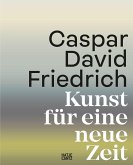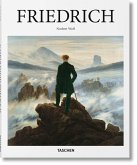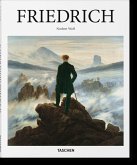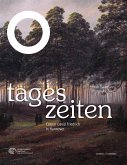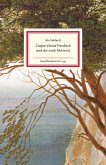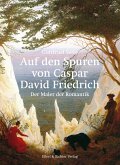At the heart of Caspar David Friedrich's work is a new view on nature. The landscape paintings and drawings of German Romanticism's foremost artist break with traditional patterns of representation. Instead, they combine an unusually precise study of nature with an uncompromising will for pictorial composition. In the first third of the nineteenth century, Friedrich's paintings paved new ways of both experiencing and at the same time reflecting on the ambivalent relationship between humankind and nature.
Accompanying the most comprehensive Friedrich retrospective in many years, this catalogue re-examines the artist's groundbreaking work in light of the urgent challenges in a time of climate crisis. His unbroken topicality is also evident in the reception of his works in contemporary art, which is presented in the second part of the book. Various reinterpretations and appropriations of Friedrich's images and themes allow the Romantic view of nature to enter into a fascinating dialogue with contemporary perspectives on nature and the discourse on ecological issues.
CASPAR DAVID FRIEDRICH (1774-1840) stands for Romanticism like no other painter. Born in Greifswald, then part of the Kingdom of Sweden, he studied drawing at the Academy of Fine Arts in Copenhagen, before settling in Dresden in 1798. During his lifetime, Friedrich's landscape compositions were as fascinating as they were irritating. They are firmly anchored in the German pictorial memory and in many ways prove to be relevant to the questions and challenges of today.
Accompanying the most comprehensive Friedrich retrospective in many years, this catalogue re-examines the artist's groundbreaking work in light of the urgent challenges in a time of climate crisis. His unbroken topicality is also evident in the reception of his works in contemporary art, which is presented in the second part of the book. Various reinterpretations and appropriations of Friedrich's images and themes allow the Romantic view of nature to enter into a fascinating dialogue with contemporary perspectives on nature and the discourse on ecological issues.
CASPAR DAVID FRIEDRICH (1774-1840) stands for Romanticism like no other painter. Born in Greifswald, then part of the Kingdom of Sweden, he studied drawing at the Academy of Fine Arts in Copenhagen, before settling in Dresden in 1798. During his lifetime, Friedrich's landscape compositions were as fascinating as they were irritating. They are firmly anchored in the German pictorial memory and in many ways prove to be relevant to the questions and challenges of today.


